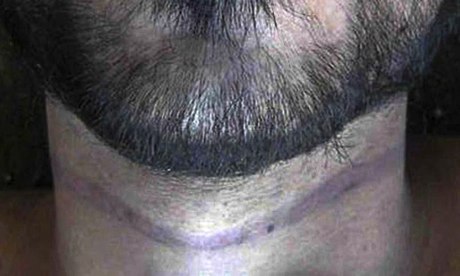By Ben Kopp
Impunity Watch Reporter, Europe
KYIV, Ukraine – Continued tensions sparked fatalities in Ukraine, as government and opposition leaders called a fragile truce. Meanwhile, the country’s neighbors fought over what message to send Ukraine.

On 22 January 2014, clashes between activists and police ended with two dead for the first time since anti-government protests began in late November over Ukraine’s decision to back out of EU treaty talks.
Ukrainian authorities identified one of the deceased as Serhiy Nihoyan, the son of Armenian refugees from Nagorno-Karabakh. In December 2013, Nihoyan travelled from his home in eastern Ukraine to join the protests. The other man shot was a Belarusian citizen, Mikhail Zhyznewski, who joined the protest with Una-Unso, a Ukrainian far-right group. A third activist was later found dead in a forest near Kyiv, after his abduction last week.
In this light, Ukrainian opposition leaders began to observe a fragile truce, which may lead to a meeting with President Viktor Yanukovych, who asked parliament to hold an emergency session to discuss the ongoing crisis.
The speaker said the session will address the opposition’s demand to remove government officials.
Opposition leader Vitali Klitschko asserted that he would lead pro-EU protesters “on the attack” if elections were not called. Ukrainian media outlets report that activists took over reigional state administrations in western cities; namely, Lviv and Rivne. The governor of Lviv, Oleg Salo has been forced out of office.
On 23 January 2014, Head of the European Commission Jose Manuel Barroso received assurances that President Yanukovych will not declare a state of emergency, after Barroso and Yanukovych spoke over the phone.
In the past week, hundreds of activists and dozens of police have been injured near Kyiv’s Independence Square.
Klitschko urged both the protesters and police cease all use of force until his talks with Yanukovych were completed. He planned three main demands to the talks:1) a snap presidential election; 2) the cancellation of the new anti-protest laws; and 3) the resignation of the government.
Prime Minister Mykola Azarov said opposition leaders should be “more humble” and “move away from the language of ultimatums.”
Azarov denied police responsibility for the deaths, saying that live ammunition was not carried.
The European Union promised that it would “rethink” its relationship with Ukraine if there was a “systematic violation of human rights.” Additionally, the United States accused Ukrainian officials of failing to “engage in real dialogue” and revoked the visas of “several Ukrainians who were linked to the violence.” Russia then accused the EU and US of improperly interfering in Ukrainian affairs.
To achieve peace, however, Ukraine must listen to its people above any foreign body.
For further information, please see:
CNN International – Ukraine: No Deal in Talks between Government and Protesters – January 24, 2014
Human Rights Watch – Ukraine: Police Beatings, Kidnappings in Kiev – January 24, 2014
BBC News – Ukraine Protests: Crisis Talks after Day of Bloodshed – January 23, 2014
Bloomberg Businessweek – Ukraine Opposition Urges Continued Truce – January 23, 2014

